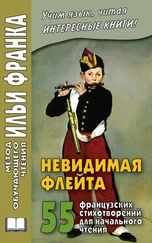‘What were the lines again?’
Evidently expecting the request, Mr Morton repeats promptly, with exactly the same intonation as before, ‘“ La donzelletta vien dalla campagna, | In sul calar del sole, | Col suo fascio dell’erba, e reca in mano | Un mazzolin di rose e di viole, | Onde, siccome suole, | Ornare ella si appresta | Dimani, al dì di festa, il petto e il crine .”’ He rewinds the tape and plays it again, and the female voice recites the words, the same words, but in her voice they are changed, sounding not like a report, as they sounded when Mr Morton spoke them, but rather like a confession whispered in the dark, to herself.
‘Beautiful,’ he responds, and Mr Morton nods, gravely, as if this were not a fatuous thing to have said. ‘When was he born?’
‘Around the same time as your hotel. Born 1798, died 1837.’
‘A short life.’
‘Short and miserable. He was never a happy man, but he had a lot to be unhappy about. With Leopardi you get the full panoply of romantic suffering: poor health, unrequited love – though I have to say that he tended to fall in love after the event, as it were, or with women he knew would not reciprocate. I think his infatuations were essentially literary. There’s something artificial about them, something willed. For his poetry he needed to be unloved. And women weren’t the worst of his troubles.’
‘The worst being –?’
‘His body.’
‘Why’s that?’
‘His appearance was unprepossessing, to say the least. In Naples he was nicknamed “ o ranavuottolo ”, the little toad. He was very small, with a large head, and his upper body was badly twisted. His digestive system didn’t function properly. He was asthmatic. He had chronic bronchitis. The deformity of his spine and ribcage was so bad that it damaged his lungs and heart. Fatally damaged them. And as if that weren’t enough,’ Mr Morton goes on, ‘he was raised in a moribund little town, in thrall to the pious tyranny of his mother. Imagine this,’ he enjoins. ‘Giacomo is barely four years old. An infant. He enters the great room of the Palazzo Leopardi, the salone . In the centre there is a huge table, decked in red velvet. Giacomo crosses the room. He pulls himself up to peep over the top of the table. And what does he discover? The body of his little brother, laid out on a velvet bed. And how does his mother comfort him? She tells him that she is rejoicing in the boy’s death. She is rejoicing because his death has sent another soul to the ranks of the blessed.’ Incredulous, indignant, Mr Morton cites other instances of the Contessa’s pitiless devotion to God, of her severity towards Giacomo and towards her husband, the proud and ineffectual and kindly Count Monaldo, who once gave his trousers to a beggar and hobbled home wrapped in his cloak, terrified lest his wife discover his act of charity, and towards her daughter, Paolina, who was forbidden to meet her penfriends when they came to Recanati from Bologna, because her mother regarded friendship as a contamination of one’s love of the Almighty. ‘And yet,’ Mr Morton sighs, raising his hands, acceding to the argument of an imaginary opponent, ‘when Giacomo at last escapes from the prison of Recanati he is no happier. For the first time in his life he is free of his family. He is free of the backwater in which it was his misfortune to be born. For six days his carriage rumbles across Italy, and what does he do? He reads his books, barely glancing out of the window.’ He shakes his head with indulgent perplexity, as if he were a travelling companion of Leopardi, observing the eccentric young man seated opposite him. ‘Giacomo goes to Rome,’ he continues, ‘and finds the big city no more to his liking than life in the provinces. Unimpressed by the great monuments, unmoved by its ruins, irked by the people he has to mix with, he claims to find pleasure only in one small corner of the city, one tiny enclave of pleasurable misery: the tomb of Torquato Tasso, in the church of Sant’Onofrio, where he wept for the poor mad poet. In Pisa too he finds a refuge from the vexations of city life, not a chapel or a tomb on this occasion, but a simple lane, a spot that becomes dear to him because – wait for it – it reminds him of Recanati, his birthplace, the town in which he had passed his youth, a period he has now come to regard as his single fleeting episode of true contentment. An impossible person. Precious and self-centred. A dilettante. An inveterate adolescent,’ Mr Morton pronounces, pausing to flop his hands apart in exasperation. ‘And yet, and yet. Adolescents are very often right. And his voice is wonderful. Wonderful,’ he repeats, his eyes following a scribble in the air, as though tracking the flight of a butterfly. ‘So simple, so clear.’
He listens, a little unnerved by Mr Morton’s flittering gaze and by the urgency of his speech. ‘Like a fantastically wealthy man who has taken a vow of poverty,’ says Mr Morton, but the disturbance created by Stephanie, which had abated for as long as the story of Lily and William Randall lasted, has returned now, and become so obtrusive that the voice of his daughter and the voice of Mr Morton are clashing, the one extolling the virtues of an unknown poet, the other berating a woman he no longer knows. Over Mr Morton’s shoulder he looks askance at the garden, weakly ashamed of his inattention, and then, not without a sense of relief, he hears a third voice, calling his name from the doorway, telling him that Mr Grenville is on the phone again. ‘If you’ll excuse me?’ he says, standing up.
Mr Morton too stands up, and shakes his hand firmly. ‘Thank you,’ he says.
Leaving the Randall Room, he looks back and sees Mr Morton on the garden terrace, with his feet widely parted and his hands in his pockets and his head thrown back, like a man on a sea wall, taking the brunt of the wind. And that night, after supper, when he goes out into the garden, he sees Mr Morton standing by the hornbeam hedge, in exactly the same stance.
Becoming aware of his presence, Mr Morton turns and dips his head, once, as if greeting him for the resumption of the afternoon’s conversation. ‘I heard an owl,’ he grins.
‘Really?’ Side by side, arms crossed, they listen together. ‘I hear the road.’
‘Wait.’ Patiently Mr Morton waits, his eyes wide open in the moonlight. ‘There,’ he whispers, remaining perfectly still, as though the bird were so near that any movement might scare it.
‘Didn’t hear a thing.’
‘In that direction,’ Mr Morton tells him, pointing towards the town. ‘There,’ he whispers again.
‘Nothing but lorries, I’m afraid.’
‘Try closing your eyes.’
‘They were closed.’
‘Ah.’
‘I always hear the road. I have a grudge against it. The beginning of the end, the day they finished the bypass. It ruined the view, to say nothing of the din.’
‘The end of what?’
‘Of the Oak. It’s closing.’
‘When?’
‘In three weeks.’
‘I didn’t know that.’
‘No. The website does rather fudge the issue. Can’t be seen to be advertising failure,’ he says, apologetically, and within a minute he is complaining about the lackadaisical stewardship of the Beltram Group. ‘Things took a turn for the worse in the year the bypass was cut. It costs money, a lot of money, to maintain a hotel of this type, but they just let it drift. The foot and mouth outbreak was the nail in the coffin. Now they’re selling up, to a London property developer, who’s going to turn the Oak into a rural getaway for overstressed high-flyers on a members-only basis. There’ll be a cinema and a gym and a sauna. Aromatherapy, yoga, massage, manicure, pedicure. A room full of video games. And the pool, apparently, is going to be wired up so the burned-out whizz-kids can float to the soothing sounds of tropical surf or a rainforest or the wind in the trees, relayed from microphones in the garden.’
Читать дальше











